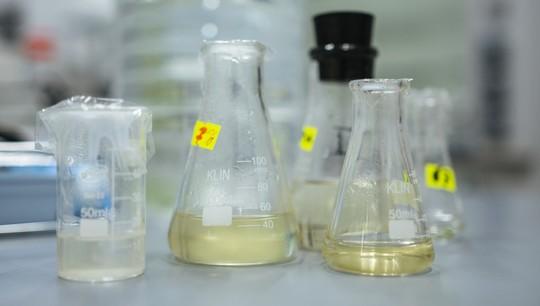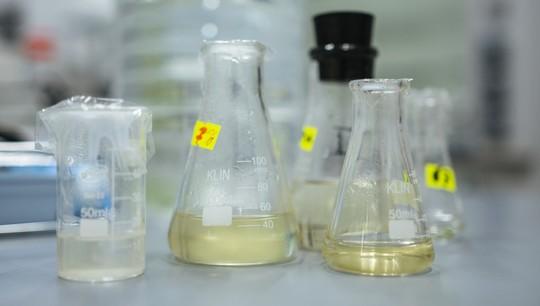
Credit: Stepan Likhachev
The employees of the Institute of Natural Sciences and Mathematics Dmitry Zaitsev and Dmitry Tsvetkov and a specialist from the Institute of Chemical Engineering, Tatyana Kalinina won the contest for the best youth teams' scientific project. The scientists developed methods for the destruction of composite materials of biological origin, the creation of highly efficient electrode materials for the electrochemical synthesis of ammonia in a unique electrolyzer and new plant protection products against phyto-pathogens.
'Ammonia is currently one of the most large-tonnage chemical products. About 150 million tons of ammonia are synthesized per year in the world. And this synthesis takes about 1% of the total energy produced. Approximately 800-1500 cubic meters of natural gas is spent on each ton of ammonia,' explains Dmitry Tsvetkov, an associate professor at the Department of Physical and Inorganic Chemistry, Institute of Natural Sciences and Mathematics, UrFU. 'Our goal is to optimize the synthesis by reducing the cost of preparing initial reagents: nitrogen and hydrogen. The basic idea is to develop highly efficient materials for the implementation of ammonia synthesis in a specially constructed electrolyzer and to create a pilot laboratory sample of such an electrolyzer.'
For project implementation, researchers will receive grants from 4 to 6 million rubles for two years.
The Russian Foundation for Basic Research also supported two conferences: "Ural school-seminar for young researchers studying metal science" organized by Artemy Popov, the head of the department of heat treatment and physics of metals, and "Modern synthetic methodologies for creating medicines and functional materials" organized by Professor of the Department of Organic and Biomolecular Chemistry, Grigory Zyryanov.
###
Media Contact
Inna Mikhaydarova
[email protected]
7-343-375-4519
@Ural_Federal
http://urfu.ru





